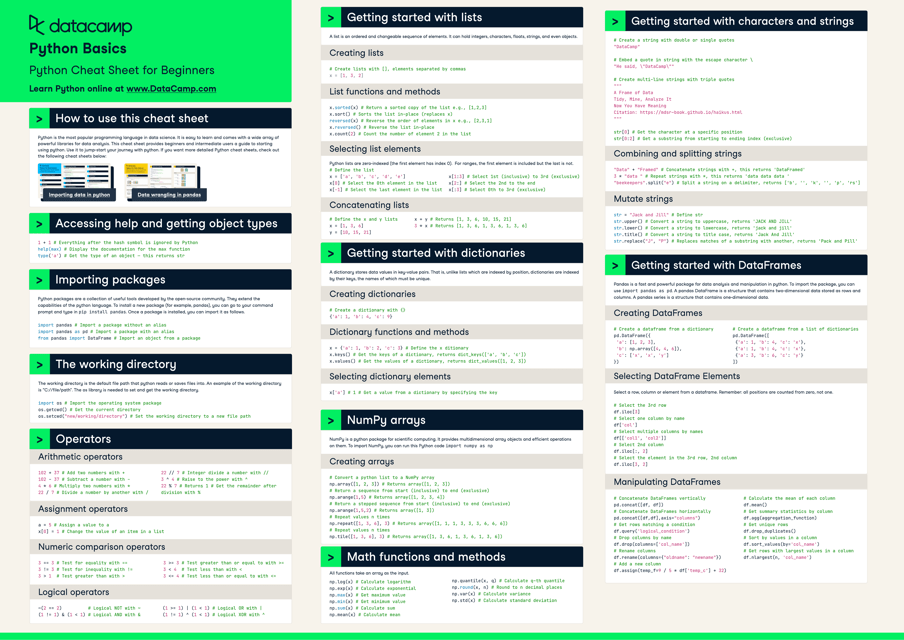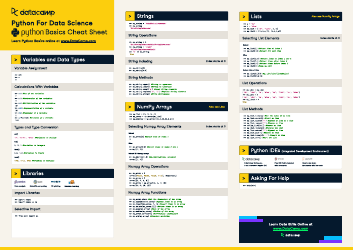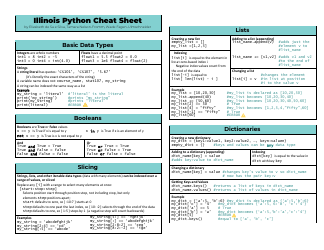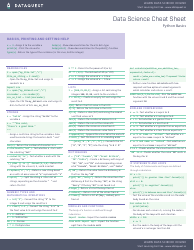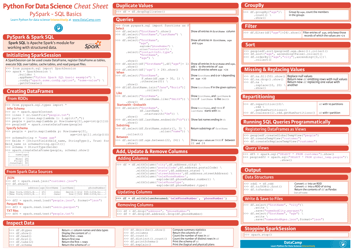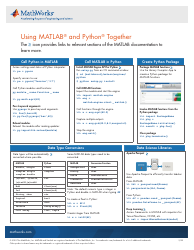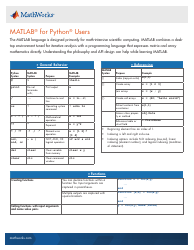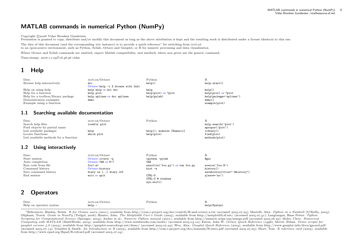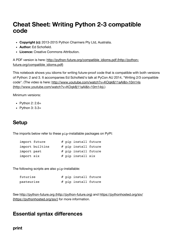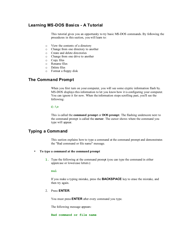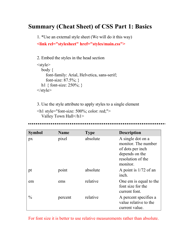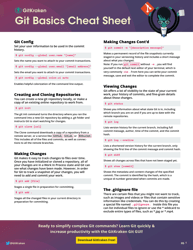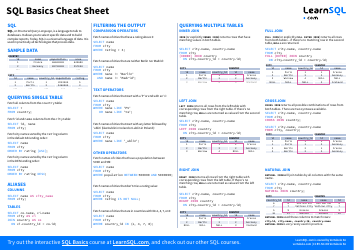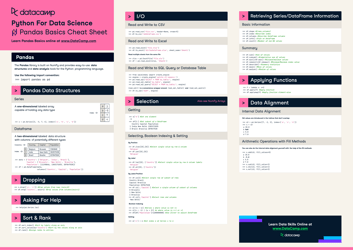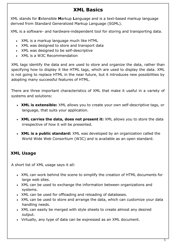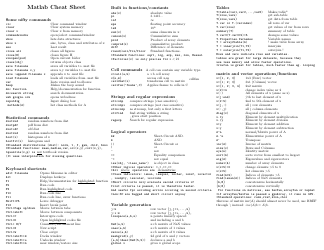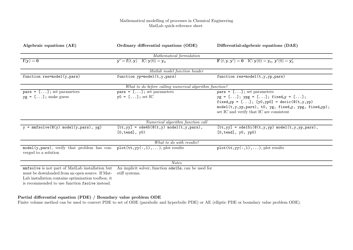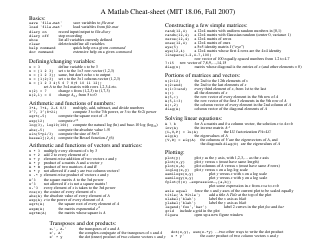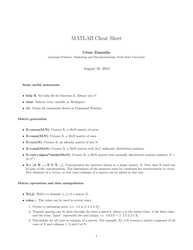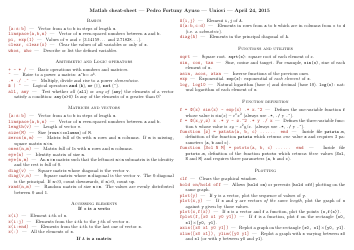Python Basics Cheat Sheet - Datacamp
The Python Basics Cheat Sheet by DataCamp is a reference guide that provides an overview of the fundamental concepts and syntax in Python programming. It is designed to help beginners learn the basics of Python and serves as a quick reference for commonly used functions and operations.
FAQ
Q: What is a cheat sheet?
A: A cheat sheet is a concise and handy reference guide that provides quick information or tips on a specific topic.
Q: What is Python?
A: Python is a high-level, interpreted programming language used for general-purpose programming.
Q: What is a variable in Python?
A: A variable in Python is a name that represents a value and can be used to store and manipulate data.
Q: What is a list in Python?
A: A list in Python is a data structure that stores multiple values in a single variable, separated by commas and enclosed in square brackets.
Q: What is a function in Python?
A: A function in Python is a reusable block of code that takes input(s), performs some task, and returns an output.
Q: What is a loop in Python?
A: A loop in Python is a control structure that iterates over a sequence of elements and executes a block of code repeatedly until a certain condition is met.
Q: What is a module in Python?
A: A module in Python is a file containing Python definitions, statements, and functions that can be imported and used in other programs.
Q: How do you comment code in Python?
A: You can comment code in Python by adding a hash symbol (#) before the comment.
Q: What are conditional statements in Python?
A: Conditional statements in Python allow you to perform different actions based on different conditions. The most commonly used conditional statements in Python are if, elif, and else.
